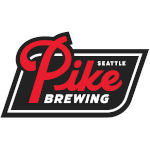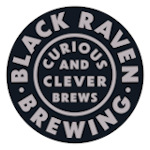For many people around the world, relationships with alcohol are a little complex. With the substance one of the most addictive drugs on the planet, many people find their relationship with it problematic. However, with alcohol being one of the most addictive substances, it’s important for beer enthusiasts to understand what moderation truly means.
Understanding what drinking in moderation is and means is important for anyone’s alcohol use, and it’s always worthwhile evaluating drinking habits regularly to ensure that your relationship with alcohol is ok.
This helps keep your drinking in check and prevents harm to your health. So, what is a healthy amount of alcohol to drink?
The Government Guidelines
Well, let’s start with what the government suggests. The NHS and Public Health England suggest that people shouldn’t drink more than 14 units of alcohol per week. This essentially equates to:
- Six medium (175ml) glasses of wine (12% ABV)
- Six pints of beer, lager, or cider (4% ABV)
- 14 single measures (25ml) of spirits (40% ABV)
What’s worth noting is that this shouldn’t be in one sitting. It should be spread evenly across the week, and regularly going beyond these can increase the risk of developing severe health conditions.
The Concept of Moderate Drinking
Defining moderate drinking isn’t just about quantity, it’s also about context. Beer, like any alcoholic beverage, is best enjoyed in a way that minimizes risks while allowing for the social and cultural benefits it brings. After all, few things compare to sharing a well-crafted pint with friends at a brewery or pairing a specialty beer with a great meal.
Drinking beer with food, for example, can help slow alcohol absorption, making it a safer choice than drinking on an empty stomach. Likewise, avoiding binge drinking not only reduces the risk of alcohol poisoning but also helps prevent accidents and poor decision-making.
Drinking in moderation, most importantly, is knowing your limits, and that can vary depending on the likes of gender, age, weight, and overall health.
Health Impacts of Drinking Within Limits
Sticking to the recommended guidelines can help mitigate the negative effects of alcohol on your health. In some cases, moderate alcohol consumption has been associated with potential health benefits, such as:
- Cardiovascular Health: Studies suggest that moderate consumption of certain alcoholic beverages, like red wine, may have a protective effect on the heart due to antioxidants called polyphenols.
- Social Wellbeing: Sharing a drink in a relaxed setting can help reduce stress and foster social connections.
However, it’s important to note that these potential benefits are not universal, and drinking alcohol should never be viewed as essential to a healthy lifestyle.
When to Avoid Alcohol Altogether
Even moderate drinking isn’t suitable for everyone. Certain groups should avoid alcohol entirely, including:
- Pregnant Women: Alcohol consumption during pregnancy can harm the developing baby, potentially leading to fetal alcohol spectrum disorders (FASDs).
- Individuals Taking Certain Medications: Some drugs can interact dangerously with alcohol, reducing their effectiveness or causing adverse side effects.
- People with a History of Alcohol Dependence: For those with a tendency towards addiction, abstinence is the safest option.
- Individuals with Certain Health Conditions: Those with liver disease, heart problems, or mental health conditions may need to avoid alcohol entirely.
Final Tips to Drink Responsibly
Here are a few tips to ensure you stay within healthy limits while enjoying alcohol:
- Keep Track of Units: Use a unit calculator or app to monitor your intake, especially when consuming mixed drinks or trying new beverages.
- Set Boundaries: Decide in advance how many drinks you’ll have and stick to your plan.
- Drink Slowly: Sipping your drink and pacing yourself can help prevent overconsumption.
- Alternate with Water: Drinking water between alcoholic beverages can help you stay hydrated and reduce your overall alcohol intake.
- Avoid Peer Pressure: It’s okay to decline a drink or stick to non-alcoholic options if you feel you’ve had enough.





























